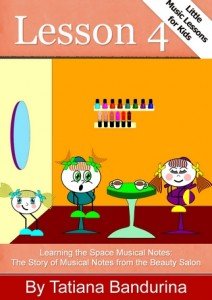 There comes a time in each child’s life when he becomes interested in letters and asks you to teach him to read books. To find out how to teach a child to read music, and what benefits it can derive from this skill, read this article.
There comes a time in each child’s life when he becomes interested in letters and asks you to teach him to read books. To find out how to teach a child to read music, and what benefits it can derive from this skill, read this article.
After the baby is born, parents are trying to talk to him as often as possible. Once the child has learned to say a few words, adults acquaint him with books. First the baby is looking at pictures, poking a finger at his favorite characters. Then he gradually learns to listen to the stories. First, they are short stories, and then the stories get longer and longer.
Finally, there comes a time when a child is interested in letters, trying to lay down the first word. Soon we will see how he begins to read independently.
Why can’t a child learn to read music books? They are much easier to read than regular books! Compare: There are 26 letters in the English alphabet, but in music there are only seven notes!
Unfortunately, you can teach your child just the fact that you are able to do well. Learning to read music is as simple as reading the usual stories and poems.
When you read a book and watch carefully for the plot, with the talent of the author of the book, you can imagine the characters, time and place of the action. The same thing happens with music books, if you know how to read them.
Since each book provides certain knowledge and certainly broadens the mind, the musical books will teach the soul of your child to see what the composer wanted to say. Also, reading musical scores increases attention, concentration, improves memory, and teaches a clear plan of action. A person with these skills can easily become a leader of the group. This is only part of benefits derived from this skill.
So as soon as your child starts his musical education, take a longer time to study the notes, their duration and their position on the staff.
It will take quite a bit of time; some notes will emerge in the bars, music sentences, the periods and pieces.
And what’s next? Tell me: did you stop reading after you learned to do it? Of course not! Therefore, if you want your child to freely read any piece of music, he must practice, practice and practice.
There are rules in reading musical texts, of course, as well as in any language, which each student is learning. Therefore, your child should have a good music teacher, who has a good skill to read any piece of music.
If you want to participate in learning of how to read music, I also recommend reading musical stories to your child from the series Little Music Lessons for Kids. Perhaps this is the quickest and easiest way to learn musical grammar. You do not have to teach your child; fascinating stories and colorful pictures make do this instead of you!
